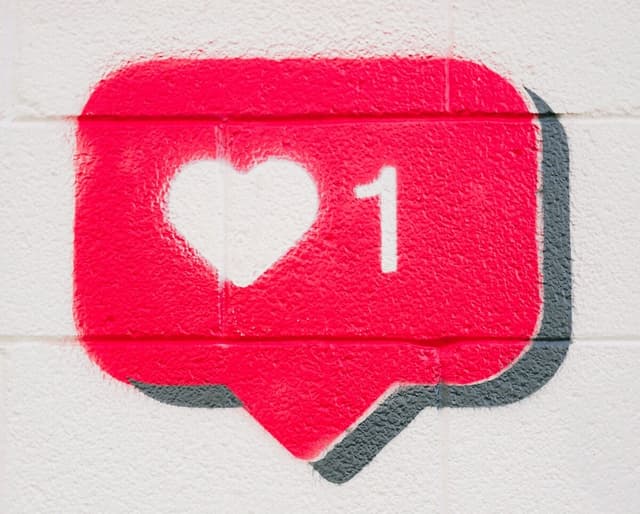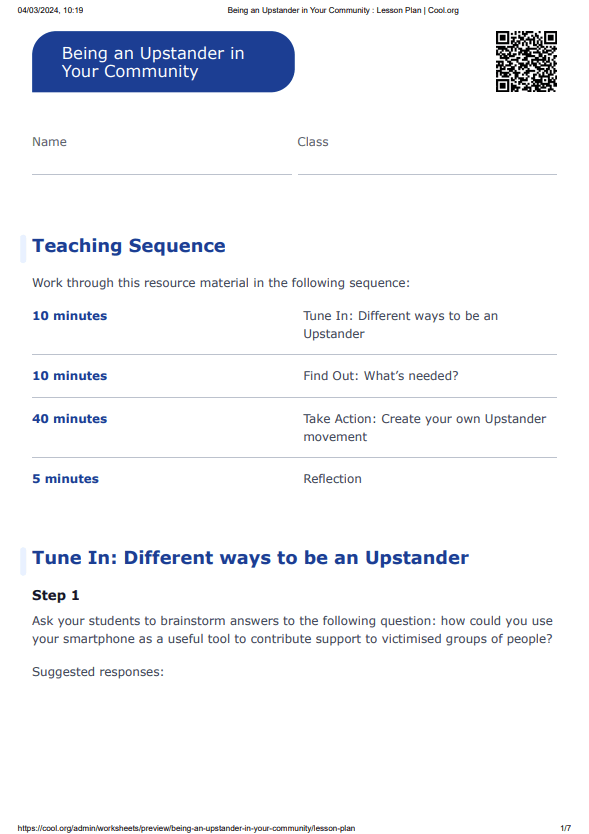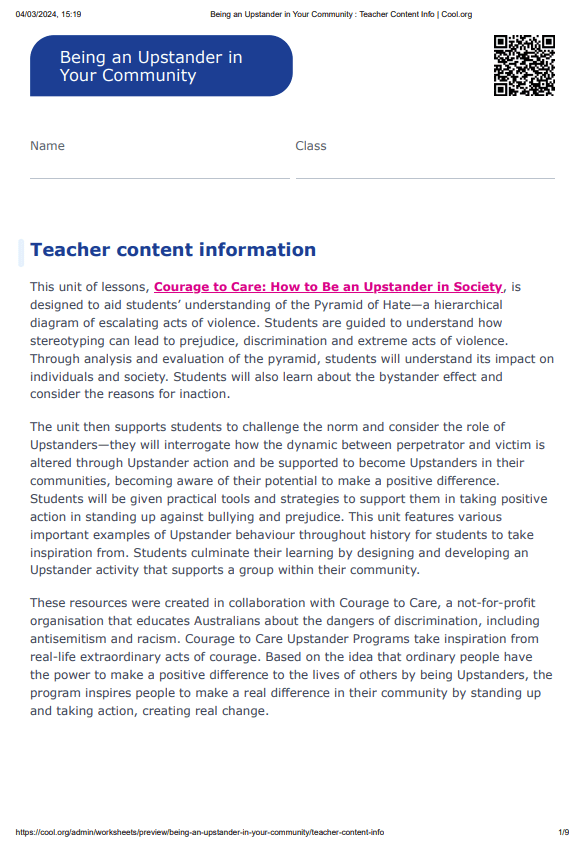
Being an Upstander in Your Community
Lesson6 of 6 in this unit
SecondaryYear 9 - 10Health and Physical EducationHealthSocialEqualityHuman RightsLeadershipSocial Action
Summary
Lesson Guides and Printables
Lesson Plan

Teacher Content Info


Lesson Plan

Teacher Content Info
